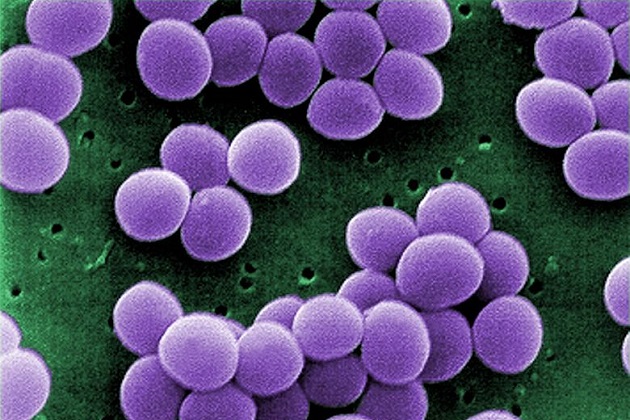
<a href="http://www.thinkstockphotos.com/image/stock-photo-taking-medicine/156218085/popup?al=156218085,178491731,462187299,155670276,177253300,122429059,186072960,98196590,462154489,462002957,462003091,450797675,462038947,462098955,461798587,180471705,180154310,142028797,453858133,122447842,453625309,452690219,451252443,110885814,450256867,450797639,186975494,187002781,186543747,186290162,186093536,186007612,185912712,185913056,185919401,464401471,184687130,184687160,463778873,183999713,463104091,462904577,462985321,462444977,164644338,462223397,450797641,462237373,462002919,462003015,462092799,182271225,180778542,186332775,180160558,179762796,101810602,156482039,179233820,178999336&sq=antibiotics/f=CPIHVX/s=DynamicRank" target="_blank">Alexander Raths</a>/ThinkStock
Antibiotic overprescription is a major problem. While there have been several campaigns to curb it, few have made a big impact—until now. In a new study, researchers Jason Doctor, an associate professor at the the University of Southern California’s Schaeffer Center for Health Policy and Economics and Daniella Meeker, an information scientist at the research think tank RAND Corporation, showed that they were able to reduce unnecessary antibiotic prescriptions among study participants by 20 percent simply by posting signs.
“We were interested in some of the psychological factors that may affect what physicians are doing, and one of the big ones is this idea of a public commitment,” Doctor explained. “If [physicians] make a public commitment they want to follow through with it, so that is how we came up with this poster idea.”
The signs looked like they were meant for patients: Each 18-by-24-inch poster showed two letters—one in English and another in Spanish—explaining how unnecessary use of antibiotics can be harmful, causing side effects like diarrhea and yeast infections, as well as contributing to drug resistance. The most important part of the posters, however, was the signature and photo of the physicians who practiced in the offices where they were displayed. The researchers did not tell the doctors that the signs’ real purpose was to remind the doctors themselves of their commitment.
“There have been studies that have posted these kinds of reminders and education,” Meeker explained, “but our results have been much larger, and we attribute that to this commitment device.”
Half the patients in the study saw doctors who had posted the commitment letter and the rest served as a control group. In the 12-week study period, inappropriate prescriptions—those written for conditions such as laryngitis, bronchitis, and non-strep sore throat, which don’t usually respond to antibiotics—fell from 43 percent to 33.7 percent. For providers who did not post the commitment letter, the rate of inappropriate prescriptions actually rose to 53 percent. Researchers found in both cases appropriate antibiotic prescriptions were unaffected.
The study was small—it included just 14 physicians who saw close to 1,000 adult patients. But the team hopes to expand the experiment to more doctors’ offices soon. Doctor and Meeker calculate that if applied throughout the US, the poster method could potentially save more than $70 million in drug costs and stop over 2 million inappropriate antibiotic prescriptions.











